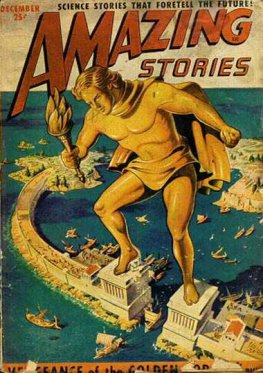
First published in Great Britain in 2014 by
PEN & SWORD MILITARY
an imprint of
Pen and Sword Books Ltd
47 Church Street
Barnsley
South Yorkshire S70 2AS
Copyright Cliff Mewett, 2014
ISBN 978 1 78346 282 7
eISBN 9781473840928
The right of Cliff Mewett to be identified as the author of this work has been asserted by him in accordance with the Copyright, Designs and Patents Act 1988.
A CIP record for this book is available from the British Library
All rights reserved. No part of this book may be reproduced or transmitted in any form or by any means, electronic or mechanical including photocopying, recording or by any information storage and retrieval system, without permission from the Publisher in writing.
Printed and bound in England
by CPI Group (UK) Ltd, Croydon, CR0 4YY
Typeset in Times New Roman by Chic Graphics
Pen & Sword Books Ltd incorporates the imprints of
Pen & Sword Archaeology, Atlas, Aviation, Battleground, Discovery, Family History, History, Maritime, Military, Naval, Politics, Railways, Select, Social History, Transport, True Crime, and Claymore Press, Frontline Books, Leo Cooper, Praetorian Press, Remember When, Seaforth Publishing and Wharncliffe.
For a complete list of Pen and Sword titles please contact
Pen and Sword Books Limited
47 Church Street, Barnsley, South Yorkshire, S70 2AS, England
E-mail: enquiries@pen-and-sword.co.uk
Website: www.pen-and-sword.co.uk
Acknowledgements
My grateful thanks to the staff at the West Sussex Records Office, Chichester, for their help in researching this book. The majority of the book is taken from the local newspapers of the time, the Bognor Observer and the West Sussex Gazette, which are held in their archives. The photographs unless specifically acknowledged, are from the Bognor Regis Local History Society.
Introduction
An assassins bullet in far off Sarajevo on 28 June 1914 seemed a world away from Bognor, an assassination that would over the next four years affect almost every family in the town. As a result of the assassination of Archduke Franz Ferdinand, Austria-Hungary declared war on Serbia, Russia mobilized to assist Serbia and Germany then declared war on Russia, who in turn had a pact with France. Britain, somewhat on the sidelines, had a treaty obligation to protect Belgiums neutrality and, as the August Bank Holiday weekend approached the international crises gathered pace.
On Saturday 1 August Germany invaded Luxemburg; France and Belgium mobilized and the British called up their Naval Reservists. The following day, Bank Holiday Sunday, 2 August, the British daily papers made an unusual Sunday appearance, selling out in hours. In London, crowds of several thousands marched to Buckingham Palace, singing the British and French national anthems, cheering wildly as King George V and Queen Mary came out on to the balcony to receive them. War fever was spreading. In Europe, Germany issued an ultimatum to Belgium requesting permission to march troops through that country, making it clear that dire circumstances would follow a refusal. On Bank Holiday Monday, 3 August, as Parliament met, Germany declared war on France and Belgium refused to allow German troops through her territory, appealing to King George for assistance. In response, the British Government demanded assurances from Germany that Belgiums neutrality would be respected, it also announced that British naval mobilization had been completed. Throughout Tuesday 4 August, Britain awaited the German reply to the ultimatum, which was due by eleven oclock that evening. No reply was forthcoming and as eleven oclock struck a message was sent to the Royal Navy, Commence hostilities against Germany. The Great War had begun.
Cliff Mewett
CHAPTER 1
Bognor Mobilizes
Pre War Bognor
The summer of 1914 was following its usual pattern; the season was in full swing with hotels, guest and lodging houses all full. Bognor was enjoying an excellent year; the numbers of enquiries received from prospective visitors in the early summer were three times the number of previous years.
Excursionists still continue to pour into the town and generally speaking the weather has been very propitious, reported the Bognor Observer in July, This week another ten thousand are expected. Last Monday, with several Sunday School Excursions, a Cook and a good many adults, the total was 1440; and yesterdays total was 2050. Today 1770 are expected. It seems to be the rule that the biggest numbers come on Wednesdays, which is unfortunate as the shops for the most part are closed. On Thursday 1100 are coming and on Friday 530. On Saturday there will be another of Cooks excursions with a small party of adults.
Visitors and locals were entertained at the Olympian Gardens by Wallis Arnolds revue and the newly refurbished pier was doing well, with its attractions of a theatre, cinema and thousands taking a stroll out to sea. Further along the eastern Esplanade, the Kursaal was also doing good business, offering skating, hockey matches, boxing matches and a good theatre where the George Edwardes Company was performing The Marriage Market. The pony and donkey men were delighting children with rides along the sand, whilst the bathing machines were busy transporting their customers to the briny. In the afternoons and evenings the sound of the Band of the 2nd Dragoon Guards, performing alternately in both the western and eastern bandstands to appreciative audiences, filled the air. Both the Bognor Town and North Bersted Bands also had full programmes and Arthur Davies Lady Car Char-a-Banc trips to Arundel, Chichester and Goodwood were as always popular, as were trips out to sea, courtesy of the local boatmen. Another attraction was the Curtis Flying Boat, based at nearby Middleton, which was frequently in the skies over Bognor, giving pleasure trips.
Local events included the Pagham and Aldwick Horticultural Show, which was successfully held although rain had spoilt the attendances, but the Felpham Flower Show a week later had a sunnier reception. Meanwhile, up at Nyewood Lane, Bognor Football Club was in training for its first season in the Senior Division of the West Sussex League.
Behind all these peacetime activities, speculation that Great Britain would be drawn into a European war was sweeping the country and, with King George V breaking with tradition by not attending Glorious Goodwood in July, being detained in London because of the foreign crises, war began to look a certainty.
Horses being requisitioned in Waterloo Square. 2 August 1914. (Sylvia Olliver)
The first visible war related activity in Bognor occurred on Friday 31 July, with the arrival home of soldiers from the Sussex Yeomanry, who had been spending a fortnight in camp at Lewes, and troops of the Army Veterinary Corps, who set up a base in the meadow at Waterloo Square and proceeded to stop and requisition horses.


















